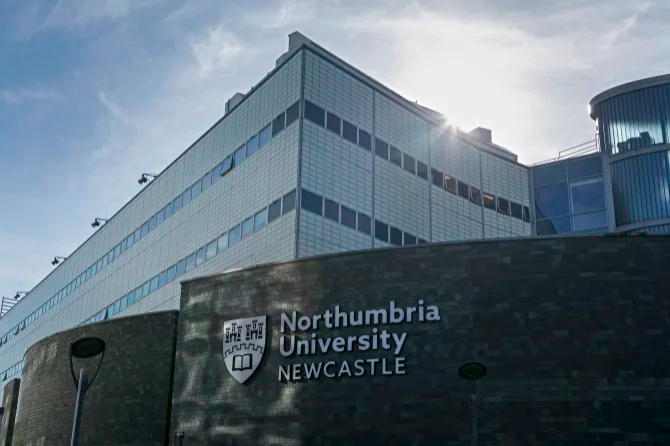
How university collaboration, Northern Accelerator, is driving an innovation-led COVID-19 recovery
A collaboration between four North East universities – Durham, Newcastle, Northumbria and Sunderland – Northern Accelerator commercialises research to create sustainable businesses in the North East.
Since it launched in 2016, Northern Accelerator has created 28 businesses and placed 23 CEOs in startups. It has also awarded £2.1m worth of pre-incorporation funding to help 50 research projects move closer to commercialisation.
Durham University, Newcastle University, Northumbria University, and University of Sunderland are all members of Northern Accelerator and the North East COVID-19 Economic Response Group, which was established by the North East Local Enterprise Partnership at the beginning of the coronavirus pandemic to provide business resilience and ensure a collective response to the economic impact of COVID-19 on the North East economy.
Tim Hammond, Director of Northern Accelerator, explains why the university partnership is key to driving forward the region’s economic recovery from the coronavirus pandemic, and why it will help deliver the North East Strategic Economic Plan by creating more and better jobs in the region.
The COVID-19 crisis has hit the North East hard. But, whilst the Spending Review was heavily focussed around the ‘levelling up agenda’ and the announcement of a £4bn ‘Levelling Up Fund’, the region’s post-COVID-19 recovery plans acknowledge the key role that highly scalable business will play in getting the economy back on its feet. There is a need to focus on the opportunities and assets we have in the North East to ensure that we can deliver a strong economic bounce back.
As a region, we are host to some of the world’s leading experts and innovators, with a thriving number of investible businesses and fantastic regional assets such as Newcastle’s Centre for Life and the Centre for Process Innovation and science and technology clusters such as the Newcastle Helix and NETPark in Sedgefield.
Our region’s universities, Durham, Newcastle, Northumbria and Sunderland, are increasingly becoming vibrant hubs of innovation, with academics embracing the opportunity to become more enterprising and commercialise their research. North East universities, through the Northern Accelerator partnership, have played a pivotal role in supporting the continuing development of the region’s business community throughout the COVID-19 outbreak, and will continue to foster innovation as a part of the recovery.
A striking regional example of COVID-19 driven innovation is the novel prototype sampling device currently in development by Dr Moschos at Northumbria University. This device uses biological information in human breath to diagnose diseases in the lungs and, could be used at airports to monitor the spread of the virus.
Northern Accelerator has helped to build a strong innovation eco-system within the region, allowing academics to harness commercial opportunities that have, and continue to generate, high-quality jobs and increase regional GDP. Our activity is accelerating, with the number of businesses created from the universities increasing five-fold since the partnership began in 2016, and the partnership created 12 spin-out businesses in the 2018-19 academic year alone. To date we have placed 25 CEOs in start-ups, created 28 businesses and allocated £2.1m worth of pre-incorporation funding to help 50 research projects move closer to commercialisation.
Since its establishment in September this year, our £1.7m Seed Fund has invested over £500,000 in two innovative university spinouts, with high growth potential. AMLo Bioscience and gliff.ai are now pursuing further job creation and international expansion opportunities as a result.
Northern Accelerator’s focus is on quality, not just quantity. The partnership’s support and backing has primarily focussed on scaling up spinout businesses with high growth potential. This helps to feed into the wider targets that have been set by the region, and in the Chancellor’s Spending Review. The work that is carried out by Northern Accelerator will be integral to achieving the North East Local Enterprise Partnership’s commitment to delivering 100,000 more and better jobs by 2024.
At a time when economic uncertainty looms, it is more important than ever that we continue to support and invest in the region. We are not resting on our laurels and have ambitions to take things further in the coming decade. We strongly believe that harnessing existing strengths to drive growth should be one of the region’s top priorities and one we will continue to support and nurture.
By Tim Hammond, Director of Northern Accelerator.







